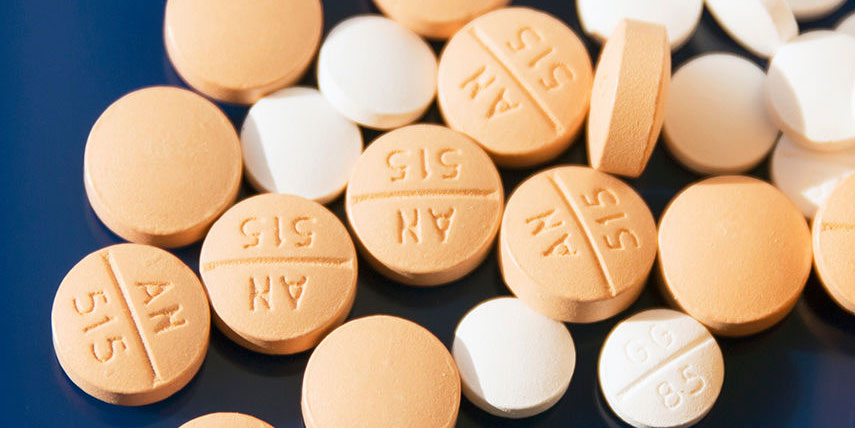 Medications are prescribed for a wide range of reasons and they may be prescribed for conditions that seem unrelated to performance-enhancement. But even if a medication is prescribed for a diagnosed medical condition, such as acne or fertility, that’s seemingly unrelated to athletic performance, athletes subject to anti-doping rules must always check the prohibited status of medications. Medications may have other uses or effects that athletes don’t know about that do pertain to sport performance.
Medications are prescribed for a wide range of reasons and they may be prescribed for conditions that seem unrelated to performance-enhancement. But even if a medication is prescribed for a diagnosed medical condition, such as acne or fertility, that’s seemingly unrelated to athletic performance, athletes subject to anti-doping rules must always check the prohibited status of medications. Medications may have other uses or effects that athletes don’t know about that do pertain to sport performance.
Learn more about one of those medications, called spironolactone (spy-ROW-no-LAK-tohn).
How is spironolactone used medically?
Clinically, spironolactone is most commonly prescribed for blood pressure control or to pull extra fluid from the body in the event of a condition like heart failure.
Guidelines from the American Academy of Dermatology (AAD) also support the use of spironolactone (Aldactone®), for treatment of moderate to severe acne in females. [i] With more research showing convincing results as an acne treatment in females, some doctors suggest this as a first-line option for women with acne who also have Polycystic Ovarian Syndrome (PCOS) or hyperandrogenism based on endocrine studies.
Is spironolactone (and canrenone) prohibited in sport?
Spironolactone is prohibited at all times under the World Anti-Doping Agency as a diuretic and masking agent. Canrenone is a derivative of spironolactone that is also prohibited. Both drugs are specific pharmacologic antagonists of aldosterone (a hormone that affects the body’s ability to regulate blood pressure), that cause increased amounts of sodium and water to be excreted, while potassium loss is minimized. Diuretics, which are also known as water pills, may be abused by athletes to dilute urine, increase the rate of weight loss, or mask other prohibited substances in a urine sample.
Spironolactone can be prescribed off label to treat hormonal acne in adult women. In some women, androgens appear to have a strong impact on sebaceous gland activity, and the spironolactone blocks the effect of those androgens. In male athletes, diuretics have mainly been misused to combat the unwanted side effects of steroid use, like water retention and an increase in pore-clogging sebum.
Can athletes apply for a TUE for spironolactone (and canrenone)?*
An athlete competing in sanctioned events must apply for a Therapeutic Use Exemption (TUE) before using spironolactone or canrenone to treat any medical condition, including acne.
Every TUE application is judged on its medical merits and ability to satisfy specific criteria, so it’s important that athletes have more than just a doctor’s prescription. In competitive sport, it’s essential that athletes have documentation of a medical condition with a confirmed diagnosis, rationale for why non-prohibited alternatives are not medically appropriate, and a clear treatment plan to show that they require the prohibited substance or method. Betterment of generalized symptoms alone is not sufficient justification to obtain a TUE.
Are there permitted alternatives to spironolactone for treating acne?
There are a number of medications also recommended in the AAD Guidelines to treat acne that, unlike spironolactone, are permitted in sport, including:
- Antibiotics, topical products, or by mouth
- Common topical acne agents like benzoyl peroxide, salicylic acids, azelaic acid, resorcinol, dapsone
- Oral contraceptives (estrogens/progesterone)
- Retinoids and retinoid-like drugs, topical products, or by mouth
USADA encourages athletes to always discuss what medical treatment is right for them with their medical provider. Athletes are responsible for letting their primary care physician know they are subject to anti-doping program rules, and the prohibited status of each medication should always be checked before use on www.GlobalDRO.com. For more information or questions about substances and TUEs, contact USADA’s Drug Reference Team at drugreference@usada.org or call 719-785-2000, Option 2.
*If you are on both a diuretic medication and an inhaler, then you need TUEs for the diuretic and the beta-2 agonist, even if you are using the beta-2 agonist under the permitted dosages. Diuretics affect the way the body metabolizes and excretes beta-2 agonists. A TUE application should be submitted and approval received BEFORE using both medications.
[i] Zaenglein AL, Pathy AL, Schlosser BJ, et al. Guidelines of care for the management of acne vulgaris. J Am Acad Dermatol. 2016; 74(5):945-973.e33. doi: 10.1016/j.jaad.2015.12.037.


